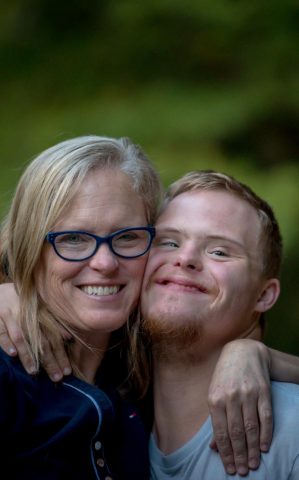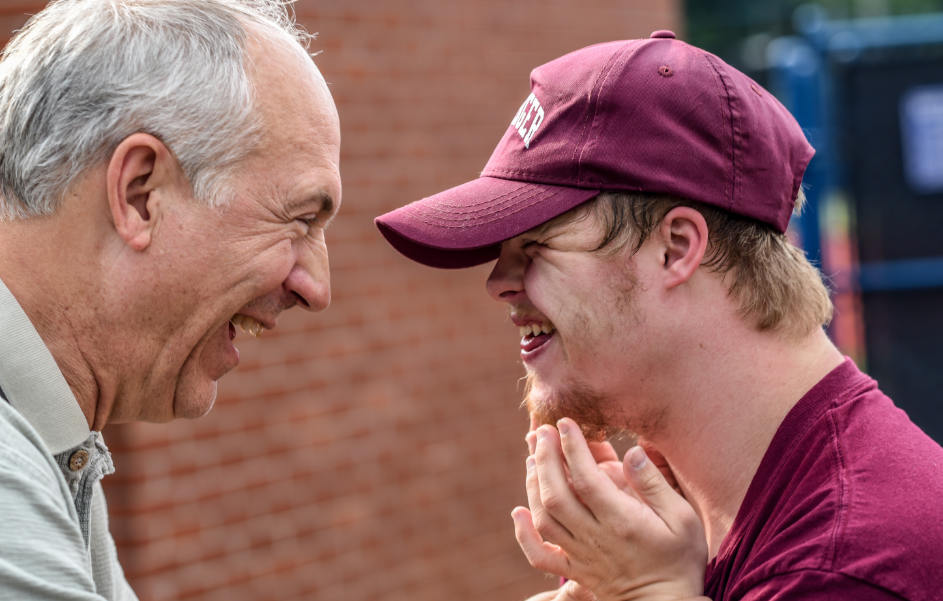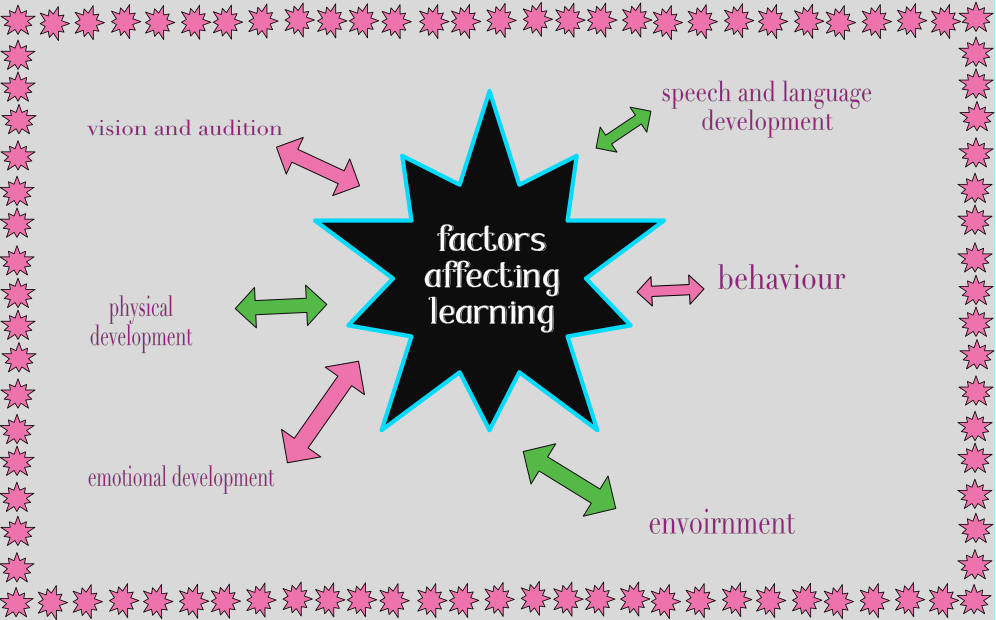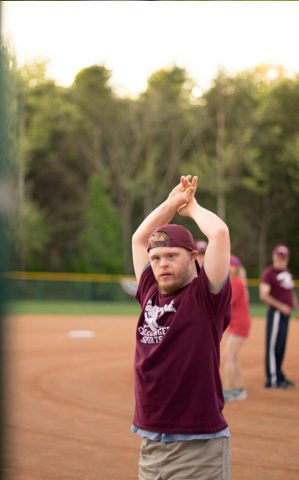On this occasion, I have the opportunity to go deeper into the topic of Down syndrome, with data that I have searched for and with a wonderful woman who lives it from her little one with Down syndrome. We must raise awareness about Down syndrome. There are many prejudices and value judgments that we adopt because of our culture, social circle, and as in everything, informing ourselves and approaching from respect to close cases eliminates ignorance and gives way to an improvement in society.
The genetic basis of Down syndrome

What is Down syndrome? Well, when we talk about it we refer to a genetic disorder that originates when abnormal cell division produces an additional total or partial copy of chromosome 21.
This additional genetic material causes the changes in development and physical characteristics associated with Down syndrome.
As with all living things, nothing is ever the same and this is why it can be said that Down syndrome varies in severity from one individual to another and causes intellectual disability and lifelong developmental delays.
A better understanding of Down syndrome and early interventions can greatly increase the quality of life for children and adults with the disorder and help them lead fulfilling lives.
Symptoms
As we have already said, when we talk about human beings in general, all people with Down syndrome are different, so both intellectual and developmental problems range from mild, moderate, and severe. Some people are healthy, while others have significant health problems, such as severe heart defects.
If we go by physical appearance, it is true that most of these people who share the syndrome also share a distinct facial appearance. Some of the most common are as follows:
- Flattened face
- Small head
- Short neck
- Protruding tongue
- Eyelids slanted upward (palpebral fissures)
- Small or unusually shaped ears
- Poor muscle tone
- Wide, short hands with a single crease in the palm
- Relatively short fingers, and small hands and feet
- Excessive flexibility
- Small white spots on the colored part of the eye (iris) called “Brushfield spots”.
- Short stature
I would like to make it clear that although there are these characteristics listed, all human beings are both imperfect and perfect. No difference or similarity in our physical appearance should make us feel that we are less beautiful, since beauty is subjective. Standards of beauty should not shape our criteria for appreciating beauty in ourselves and those around us.
Causes
As we have already explained, Down syndrome is generated when an abnormal cell division occurs in chromosome 21. These abnormalities in cell division cause an additional partial or total copy of chromosome 21. This additional genetic material is responsible for the characteristic features and developmental problems of Down syndrome. Any of these three genetic variations can cause Down syndrome:
Trisomy 21. In approximately 95 percent of cases, Down syndrome is caused by trisomy 21: the person has three copies of chromosome 21 instead of the usual two copies.
Mosaic Down syndrome. In this rare form of Down syndrome, only some of the person’s cells have an extra copy of chromosome 21.
Translocation Down syndrome. These children have the usual two copies of chromosome 21, but also have extra genetic material from chromosome 21 attached to another chromosome.
There are no known behavioral or environmental factors that cause Down syndrome. So for the moment we only know of these three causes, where no one is really responsible for the syndrome, let’s eliminate the blame, especially on the mothers or mothers-to-be, you did nothing wrong.
Is it hereditary?
This is a question that I think we all have and no one dares to ask it openly because they mistakenly think that it is their family’s fault. I repeat, there is no blame here.
Most of the time, Down syndrome is not hereditary. It is caused by an error in cell division in the early stages of fetal development.
Risk factors
Some parents have a higher risk of having a baby with Down syndrome. Risk factors are:
Advanced maternal age. A woman’s chances of giving birth to a child with Down syndrome increase with age because older eggs are more at risk for improper chromosome division. A woman’s risk of conceiving a child with Down syndrome increases after age 35.
However, most children with Down syndrome are born to women younger than 35 because younger women have many more children.

Being carriers of the genetic translocation for Down syndrome. And having had a child with Down syndrome. Parents who have a child with Down syndrome and those who have a translocation have an increased risk of having another child with the disorder. A genetic counselor can help parents understand the risk of having another child with Down syndrome.
Complications
People with Down syndrome may have a variety of complications, some of which become more noticeable with age. Some of these complications may include the following:
Heart defects. Approximately half of the children with Down syndrome are born with some type of congenital heart defect. These heart problems can be life-threatening and may require surgery in early childhood.
Gastrointestinal defects. Some children with Down syndrome have gastrointestinal abnormalities, which may include abnormalities of the intestines, esophagus, trachea, and anus. They may be at increased risk for digestive problems, such as gastrointestinal obstruction, heartburn (gastroesophageal reflux), or celiac disease.
Immune disorders. Due to abnormalities in the immune system, people with Down syndrome are at increased risk for autoimmune disorders, some types of cancer, and infectious diseases, such as pneumonia.
Sleep apnea. Because of bone and soft tissue changes that obstruct their airways, children and adults with Down syndrome are at increased risk for obstructive sleep apnea.
Obesity. People with Down syndrome have a greater tendency to become obese compared to the general population.
Spinal problems. Some people with Down syndrome may have an incorrect alignment of the two upper vertebrae in the neck (atlantoaxial instability). This condition puts them at risk for serious spinal cord injury due to overstretching of the neck.
Leukemia. Young children with Down syndrome have an increased risk of leukemia.
Dementia. People with Down syndrome have a greatly increased risk of dementia; signs and symptoms may begin around age 50. Having Down syndrome also increases the risk of Alzheimer’s disease.
Other problems. Down syndrome can also be linked to other conditions, such as endocrine problems, dental problems, seizures, ear infections, and hearing or vision problems.
Routine health care checkups and treating problems promptly can help people with Down syndrome maintain a healthy lifestyle.
Currently, a person with Down syndrome can expect to live more than 60 years, depending on the severity of his or her health problems. There is no way to prevent Down syndrome.
Interview with Aloña Gutiérrez
We had the opportunity to count on the participation and contribution of a great woman for the realization of this article: Aloña Gutiérrez, of Spanish origin who has been living in Germany for more than twenty years, a great professional in her area, but this time we were more interested in her family life. She is the mother of three children, the oldest is seven years old and her twins are four years old, one of her twins has Down syndrome.
Arandy Kir: How does the life of a person with Down syndrome differ from that of a person considered normal?
Aloña Gutiérrez: People with Down syndrome are as different as people without it. And as such, there can be big differences between them. So, it is quite difficult to generalize and say what is the biggest difference they can present. But it is true that, well almost all people with Down syndrome present a certain intellectual delay or disability in this case, which can be very different from one person to another.
There are some physical limitations. There is a quite common feature in all of them which is great muscular hypotonia; which makes it difficult to learn to sit up by themselves for example, in the age babies, to walk all this is slower than starting from there, all learning in them takes more time… There is a wide, very wide spectrum in Down syndrome.
So we can speak from the person with Down syndrome who has been able to go to a school in inclusion and even learn a trade or very few people but some have also studied at the University, on the one hand; on the other hand, there are people with Down syndrome who do not speak or understand; who are not able to eat by themselves, they need a tube, very few but there are also those who cannot walk, in short, I mean that for people without Down syndrome there are very small or very large differences.

Arandy Kir: How can these people be helped to lead a more independent life?
Aloña Gutiérrez: We have to start from the case, as we said before, each person with Down syndrome has a very different starting point. But today there are indeed many therapies and aids that make their development much better than a few decades ago. From very early on they usually start with early care with stimulation and also with therapies such as physiotherapy, especially for the low muscle tone that they usually have.
Also when there are problems with breastfeeding or swallowing liquids or even later when they start with complementary feeding, they usually go to a speech therapist for example, and later ergotherapy, then with the help of this type of therapy can help people with Down syndrome a lot.
To what extent they can become independent or not; it depends on the one hand on the stimulation they receive, but on the other hand on the starting point they have. Because if there is a very important intellectual disability, which is sometimes at the neurological level, it has less to do with the therapies that can be offered. So you can’t do as much as in other cases.
There are also options in adulthood, they may want to live more independently; they may have some kind of support people to help them live in their own home. But with a little more help, a little bit of, let’s say, almost surveillance, but well, as well as in schools they usually have a support person; or if it is not possible for them to live alone, many times there are shared apartments with someone who is usually there to support them, continuously, or rather several people who take turns to be with them and give them that support. They do not always have to remain with their families in adulthood. Nor do they have to be in a residence for people with disabilities as it used to be in the past. So there is always help, but of course, it depends a lot on each person.
Arandy Kir: What problems do people with Down syndrome face?
Aloña Gutiérrez: One of the big problems you tend to have, at least in Germany, is with bureaucracy. The paperwork for any kind of help or support is quite complicated. And it usually requires a lot of patience, a lot of strength, a lot of insistence, a lot of fighting, to be able to get that help or that support.
Inclusion is still an issue, labor inclusion above all because in the end the great majority of people with Down syndrome end up working in workshops for people with disabilities and receive a derisory salary. It would be desirable that many of them could work in the first-class labor market…. it is difficult to understand that in some cases they may not be able to produce as much as a person without Down syndrome.
But, the capacities that they have sometimes are at another level. On a social level, on a work environment level, they really contribute a lot to the workplaces they are in. There is still a lot to be done and the solutions are not easy.
Arandy Kir: What is life like for a mother of a child with Down syndrome?
Aloña Gutiérrez: It depends on the child and the mother and of course the degree of disability this child may have.
Some mothers say well. Apart from the fact that there are more medical appointments, therapies, it is not so different from life with other children. In cases of greater disability or greater physical and medical problems, it is different, like when a child is sick.
This is the case of my son who has a lot of physical problems; he was born with a heart disease that was successfully operated on when he was 6 months old, but he also has a chronic intestinal disease that causes him a lot of problems, a very pronounced hypotonia. And he may have autism already in the pregnancy, there were signs that in the brain there were certain localizations of the liquid, which can also entail some neurological problem, which later has its consequences in the psychological, psychic, and intellectual development of the person.
These are things that cannot be influenced in any way and, as a mother, it is simply the accompaniment on the way that she has.

Arandy Kir: Why is there so much misinformation on the subject of Down syndrome?
Aloña Gutiérrez: I don’t know if there is so much misinformation, I really had contact with some people who were already aware of Down syndrome in Spain before I became pregnant with my baby and in my case maybe it was even the other way around, I had an easier image of Down syndrome. Only as a certain intellectual disability but I was not informed about the associated diseases that they could have… I think it has gone in a few decades perhaps from the image of the person with Down syndrome who could do almost nothing, to try to propagate an image of the person with Down syndrome who can do almost everything.
This is something that I see as something good on the one hand, I understand that they want to give a positive image of Down syndrome; so that people are not afraid of it because it has been known that since prenatal diagnosis can be made very few children with Down syndrome are born and perhaps in this way they want to take away the fear of those possible mothers of children with Down syndrome; and that seems to me to be positive.
On the other hand, giving an overly positive image of Down syndrome without making it clear that there is a wide spectrum that can go from one extreme to the other can cause a lot of frustration in some mothers who decide for their baby and then realize that the baby does not develop as they expected. This can also provoke a certain depression in some mothers, this is something that I have seen in some groups. So it would be more important to give a real image of Down syndrome.
Arandy Kir: Have you faced any discrimination towards your son?
Aloña Gutiérrez: there has not been any kind of discrimination towards him. What has happened to me is that they ask me if I already knew the diagnosis when I was pregnant… it is really in bad taste. They also ask questions when they see that they are twins if they are natural or in vitro, I say but well, some people ask insolent questions.
We didn’t know 100% but we sensed it, we decided not to do invasive tests, in our case we didn’t want to put either of the babies at risk but also for us they were wanted babies… whatever it was… we couldn’t do the DNA blood test either because being twins the answer is not usually conclusive. We would have done that test if they were not twins, just to find out, but it was clear that the diagnosis, in that case, was not going to change our decision.
I see the discrimination more in this sense since I am seeing very good acceptance towards it.

Arandy Kir: What would you say to a mother whose baby has been diagnosed with Down syndrome since pregnancy?
Aloña Gutiérrez: I know it is a difficult decision, me if it is a wanted baby I don’t think it is a reason not to have it. I am not against abortion when it is an unwanted baby for whatever reason and it is done in the first few weeks. It is not the time and you do not have the baby but with Down syndrome many times it is later even in Germany you can have an abortion until the contractions start, already at that time the baby would be able to survive, but you can have an abortion at that time; to say that the mother does not want to have a baby with Down syndrome, regardless of whether she has other associated diseases or not, then it seems to me that it is a difficult point. I recognize that I am quite sensitive on this issue and it touches me, it hurts me when I hear that these things happen.
I think that if it is a wanted baby, that even babies that are born healthy things can happen, it is something that we cannot predict, we do not know how our baby is going to live if it is going to have some unknown disease when it is born, that cannot be detected and there are cases.
I don’t want anyone to be afraid, but maybe we should think about the fact that having a baby also entails those fears and those risks that something may not be perfect, we have to think about whether we are willing to be there for our baby for whatever, children with Down syndrome can have a very wide spectrum of development, we can have the fantastic Down syndrome baby, beautiful, who takes longer to walk than the others, but does not have many complications; or the one who really needs more time with many complications; who requires more time for everything.
What I think we all agree on is that they bring us a lot of things. Those of us who have had our babies, even those who have had them without knowing it during pregnancy and upon learning the diagnosis, after holding their baby in their arms, thought that the earth was being taken away from under their feet, not that the world was coming to an end, many of us often say afterward, if I had known at that moment how our life was going to be, I would not have been so upset and I say this even if I had a baby with many health problems like ours.
We learn to value the important things in life, we slow down. Here nobody thinks about whether the child is going to be a doctor, a mechanic, go to university, whether he is going to achieve I don’t know how many successes in his life, we begin to think that the important thing is that he is happy and we even slow down concerning the other children we already have in the family. We take everything with a different philosophy. I would like to lose that fear a little bit and maybe the problem is that most people face pregnancy with expectations that are not always real, we expect a perfect pregnancy with the perfect baby with the perfect birth and unfortunately in life, not everything is perfect.
We are people

I would like to end this article by thanking Aloña for sharing with us from her heart, a little bit of her personal life and her point of view on this relevant topic. I confess that I think the same way she does about the decision to become a mother, it is a personal decision and if it is a desired child it will be accepted and loved by her family.
Let’s remember that we are simply people, human beings, that we consider ourselves equal because we share certain characteristics, but that each one is so different that we usually say that each head is a world, I think that accepting each other from the differences will lead us to a more inclusive society in general.
People with Down syndrome either with or without medical complications are still human as people without Down syndrome with or without any disease. Let us open our hearts for their and our good.


